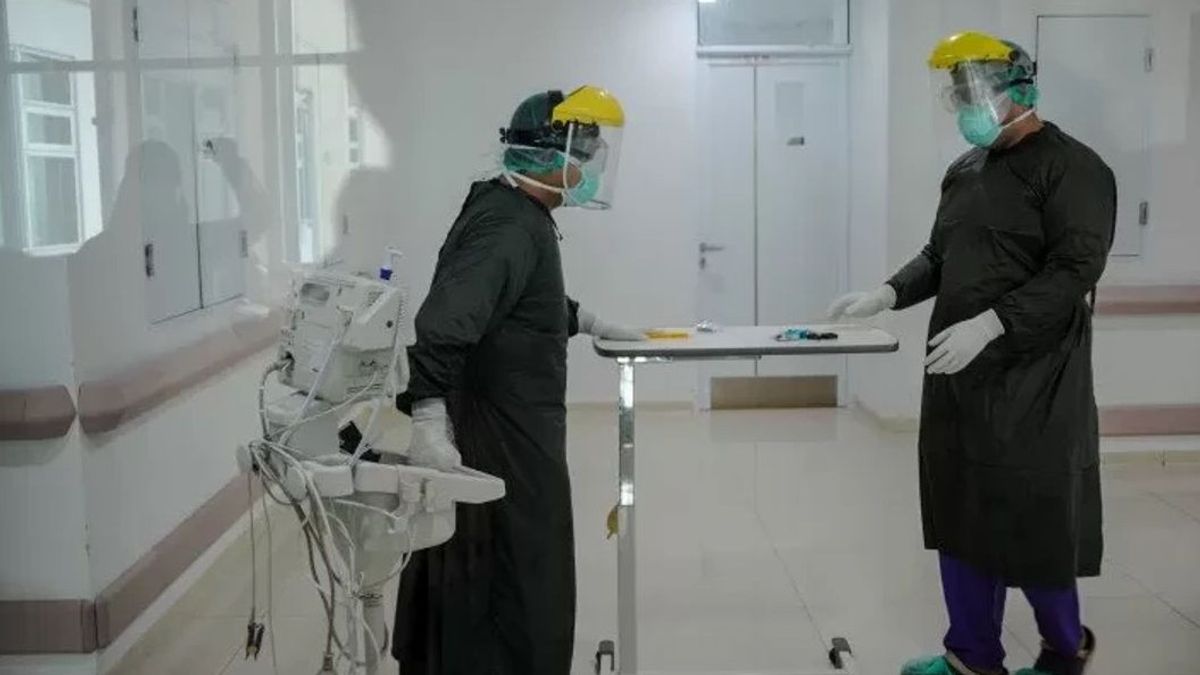JAKARTA - Head of the Indonesian Doctors Association (IDI) COVID-19 Handling Task Force, Prof. Dr. Zubairi Djoerban, said that the use of masks was still needed in the transition from the COVID-19 pandemic to the current endemic.
"We have passed the peak of the Omicron and are now entering the transition to endemic conditions. What we have not yet for endemic conditions is still regarding (the use of) masks," he said in a webinar entitled "Family Preparation for the Transition of the Pandemic to Endemic Period", as reported by Antara, Tuesday,
Prof. Zubairi explained that one of the conditions for achieving the endemic status of COVID-19 was a low risk of transmission. This condition can be translated into a weekly positvity rate of less than 3 percent.
Indonesia in December to January had reached less than 1 percent, but when Omicron cases rose, the positivity rate also jumped to 40 percent.
"Now it has started to fall but has not yet reached the so-called very low risk of transmission, not yet 3 percent," said Prof. Zubairi.
The second condition for achieving endemic is vaccination of adults and elderly people of more than 70 percent. According to Prof. Zubairi, this target was achieved in the age group under 60 years and the opposite results in the age group above 60 years.
On the other hand, bed occupancy rate (Bed Occupation Rate or BOR) also needs to be low in order to achieve endemic. In Indonesia, the BOR rate is said to be low but not evenly distributed across the region.
According to Prof. Zubairi, although the number of new cases of COVID-19 in Indonesia currently stands at 1,196 cases or lower than previously which had reached tens of thousands, including in July 2021 (around 56 thousand), it does not mean that people are careless.
"Regulations must be enforced properly, need to be disciplined. We see that in America, Australia, if we saw that before the end of the epidemic, many people did not wear masks. We need to be vigilant, not to be arrogant, too confident," he said. In this transitional period, Prof. . Zubairi reminded those who have not received a complete vaccination to immediately complete the dose, including a booster for people who have received the primary dose.
On the other hand, meeting with other people outside the house should be sought outdoors. Even if you have to do it indoors, you should make sure the air circulation is good, including opening the windows even though the room is equipped with air conditioning. Clean and healthy living behaviors such as routinely washing hands and covering nose and mouth when coughing or sneezing also need to be implemented.
"We still need to wear a mask when we leave the house, if we use public transportation it is mandatory. If it's endemic if we exercise in the field or open space, we don't need it later. But on public transportation it is mandatory (wearing a mask)," said Prof. Zubairi.
In addition, he also advised people to reduce mobility outside the house if it is not so important.
Then, regarding the fourth or second booster vaccination, this could be possible because not all of those who received the first booster had an immune response as good as others.
"The fourth vaccination is necessary? It may be necessary because not everyone vaccinated the immune response booster is very good. There are those who fail, those who fail to need the fourth, who have low immunity (such as cancer patients who have not fully recovered, people with HIV who have not started treatment and people with autoimmune disease)," he explained.
Prof. Zubairi added, if the endemic is achieved, it does not mean that people can return to their normal lives. According to him, the endemic status is a sustainability control measure.
The English, Chinese, Japanese, Arabic, and French versions are automatically generated by the AI. So there may still be inaccuracies in translating, please always see Indonesian as our main language. (system supported by DigitalSiber.id)








